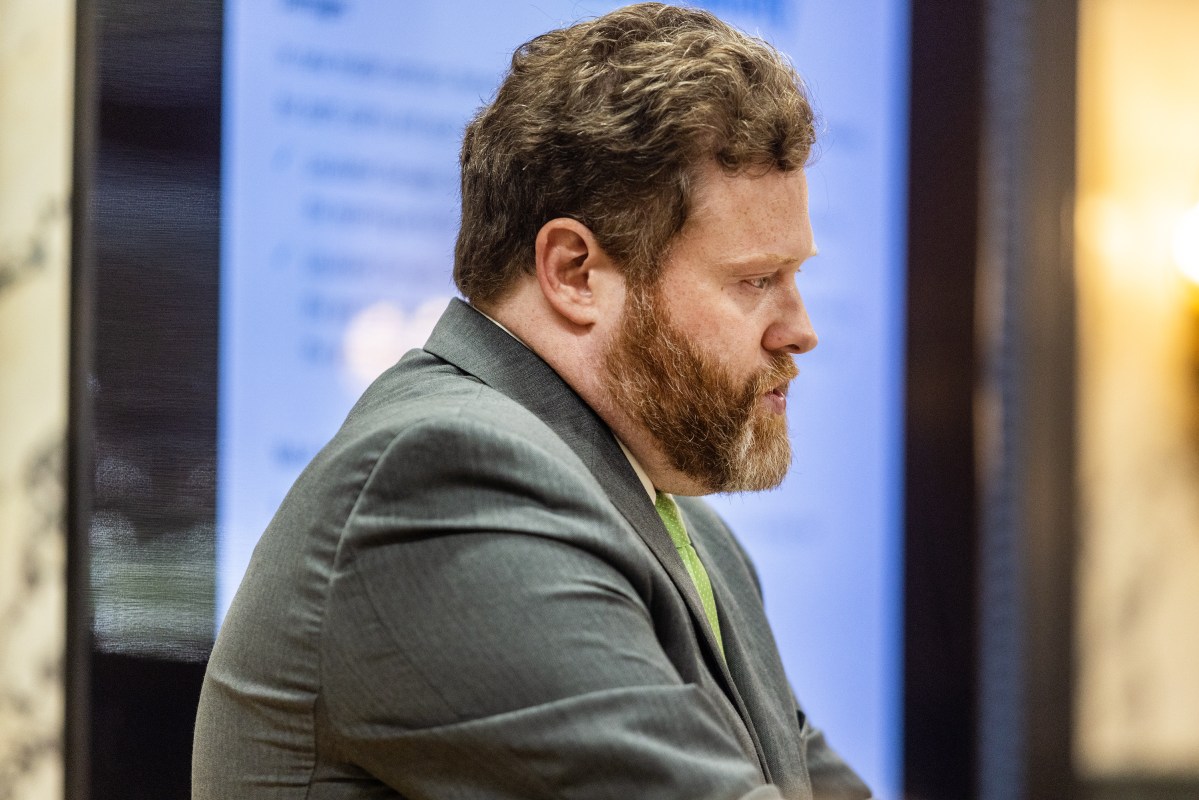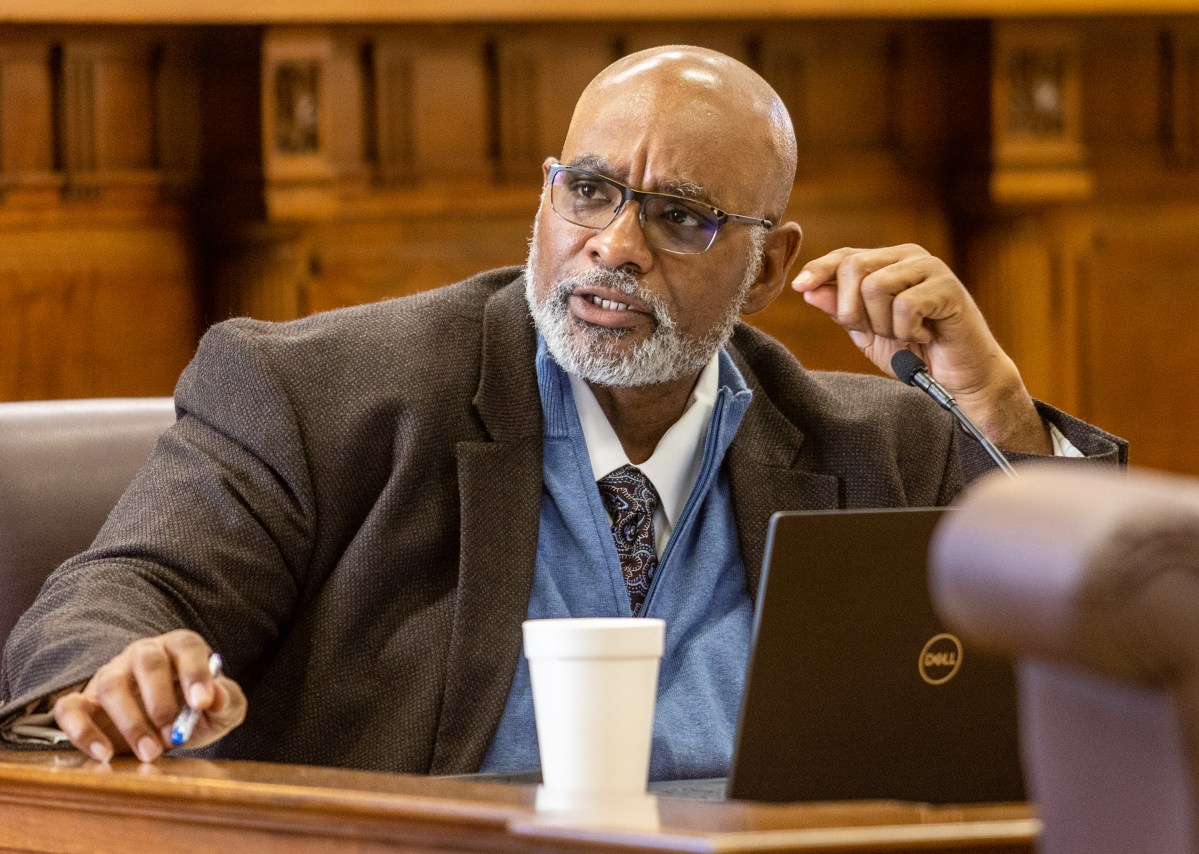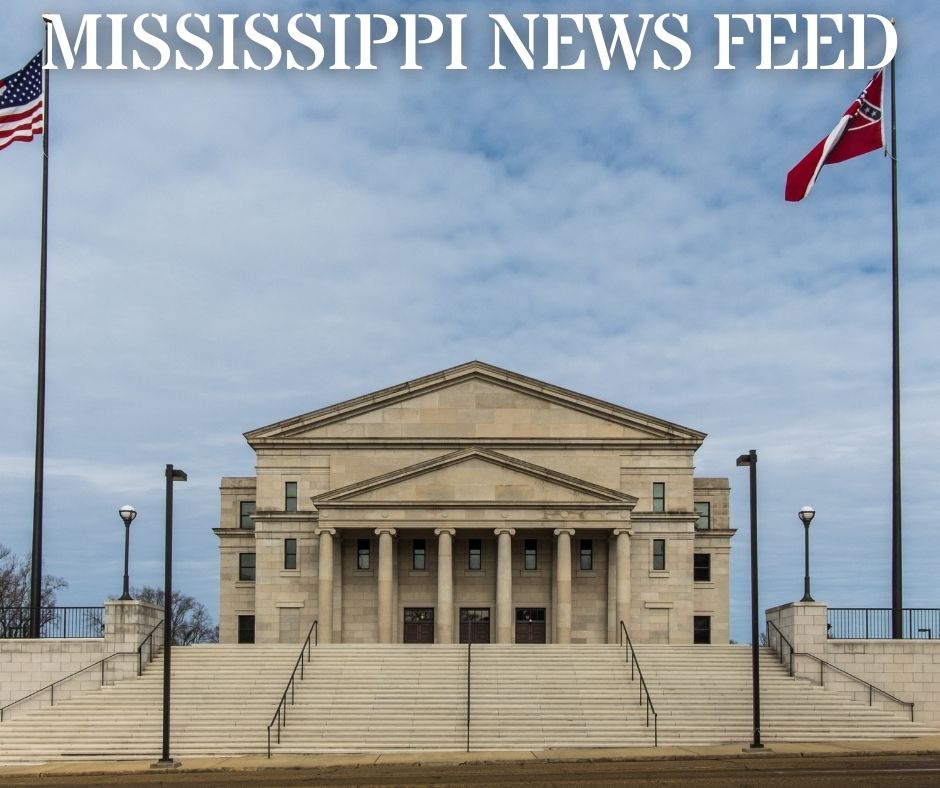Mississippi Today
Texts: Lawmakers maneuver Mississippi’s Medicaid rolls

Texts: Lawmakers maneuver Mississippi's Medicaid rolls
Wading through the complexities of Medicaid eligibility in order to secure health insurance for yourself or your family member in Mississippi can be a nightmare. It might even feel impossible.
But if you happen to go to church with a state legislator, you may be in luck.
“Please have someone check on the Medicaid app on (patient),” Rep. Jody Steverson, R-Ripley, wrote to Mississippi Division of Medicaid Director Drew Snyder last summer. “(Patient) has cerebral palsy and I attend church with his grandparents.”
Snyder forwarded the message to Tracy Buchanan, Medicaid's director of long term services and supports. “Will do,” she responded.
In roughly the last year, Snyder asked Buchanan to follow up on requests from at least eight lawmakers, all white Republican men, according to text messages obtained by Mississippi Today.*
“Being a lawmaker, you can go to the head of the department and start there,” said Rep. Price Wallace, R-Mendenhall, who called and texted Snyder about a Medicaid application in January. “When you can call the top brass and let them know, then the problem seems to get worked out a lot quicker than starting at the bottom and trying to go up the ladder.”
In the texts, the politicians ask for special attention, sometimes explaining the heartbreaking circumstances and the roadblocks that specific beneficiaries faced in attempting to access Medicaid – the public health insurance program reserved for the poorest and most medically fragile citizens.
Medicaid is one of the largest arms of the nation's social safety net, a maze of taxpayer-funded assistance that ideally exists to level the playing field for needy Americans, if not just simply help them survive.
Mississippi lawmakers – as well as Gov. Tate Reeves, who reappointed Snyder from the previous Gov. Phil Bryant administration – have resisted expanding Medicaid to cover the poor and uninsured. They've opted instead for punitive policies that target beneficiaries for suspected fraud, such as the HOPE Act, which they refused to repeal even after recent pleas from the Reeves-appointed welfare director.
Yet they can tap into the programs for those they personally deem worthy.
“Thank you for again helping me,” House Appropriations Chairman Rep. John Read, R-Gautier, texted Snyder in early 2022. “The family at this time can not express how great they feel.”
Looking at it one way, the requests demonstrate the lawmaker's accessibility, their resourcefulness, tangible constituent representation.
But the texts also reflect the potential influence lawmakers have over the agency, not just in relation to its state budget, but in determining who successfully ends up on the Medicaid rolls in the poorest state in the nation.
“Legislators often reach out to the Division with questions or concerns raised by their constituents, and we take those questions and concerns seriously,” Medicaid said in a written response to Mississippi Today. “However, we strongly disagree with your assertion that these communications demonstrate a pattern of legislative influence on who gets served and how quickly.”
While some of Snyder's inquiries to Buchanan over the last year came from other connected people, the majority originated from lawmakers. Snyder, who came to Medicaid after working as a deputy chief of staff and policy advisor in Bryant's office, has an incentive to make lawmakers happy, since they determine his state budget.
“I think it does help, you know, when a lawmaker makes the phone call. It puts a little bit hotter fire under their bottom,” Wallace said. “… When I talked back with Drew, he was like, ‘Yeah, we got everything handled.' So it was taken care of.”
“That's what we're here for,” Wallace said. “In all honesty, that's why I ran for this job, to help my constituents. That's where I get the most satisfaction of being a representative for the state of Mississippi District 77 is when one of my constituents calls me with a problem and I'm able to help them resolve that problem.”
Mississippi Today recently published a story about the struggles that a couple in north Mississippi have had navigating a special Medicaid program, called the Medicaid IDD waiver, for their 23-year-old son, who has severe autism.
The couple, Natalie and Jamie Gunnells, sought help from their local lawmaker Sen. Chad McMahan, R-Guntown, which they had supported in his past campaigns. McMahan set up a meeting for the Gunnells with officials from Medicaid, which eventually acquiesced, adopting a temporary policy that allowed Natalie Gunnells to get paid for care for her son.

“I know how to work the system for the people I represent,” McMahan told Mississippi Today. “… I have figured out a way to be very successful in helping my constituents get the medical services or the disability services their family needs. And I'm not gonna reveal how I've learned it. I've learned the system.”
When McMahan found out the Gunnells had expressed support for his upcoming political opponent, a conservative opposed to Medicaid enhancements, the senator called them out, saying it was a “slap in the face” considering all the hours he spent lobbying on their behalf.
Asked if he thinks about helping people access public assistance as a way to secure votes, McMahan said, “That never crosses my mind. There's never a wrong time to do the right thing.”
(Medicaid later chose not to permanently adopt the policy).
Rep. John Hines, D-Greenwood, said when he's reached out to Medicaid about concerns, current agency leadership has always been responsive to him, explaining why one of his constituents may or may not be eligible for the assistance. They say they want to help, Hines said, but that they have to stay within strict eligibility guidelines.
To Hines, this scenario illuminates a larger point: There wouldn't be such a need for lawmaker intervention on specific beneficiary cases if those lawmakers put in place equitable policies for all.
“I think the issue in the whole Medicaid system is the fact that we did not expand,” Hines said. “And a lot of these conversations, a lot of these situations that are happening here in this state, if we would just expand it, we would not be having. There wouldn't even be a need for you to do the story that you're doing.”
Hines continued: “The government's inability to want to expand Medicaid forces representatives and directors of agencies to have to make uncomfortable decisions and conversations around the safety and the health of constituents, which would automatically be eligible for Medicaid if we would expand it, and they wouldn't have to be making all these special phone calls.”
Below are the texts between Snyder and Buchanan referencing lawmaker interactions with Steverson, Read, Wallace, Rep. Tracy Arnold, R-Boonville, Rep. Rob Roberson, R-Starkville, Rep. Joey Hood, R-Ackerman, Rep. Bubba Carpenter, R-Burnsville, Rep. Sam Creekmore, R-New Albany, and former House Ways and Means Chair Jeff Smith, R-Columbus. Most of them either declined to comment or did not return texts or calls to Mississippi Today.
*The text messages referenced in this story were sent between Snyder and Buchanan from Dec. 1, 2021, to February 16, 2023. They do not reflect the entirety of communication between state lawmakers and Snyder, just the correspondence he forwarded to Buchanan that was then shared with Mississippi Today to fulfill its records request.
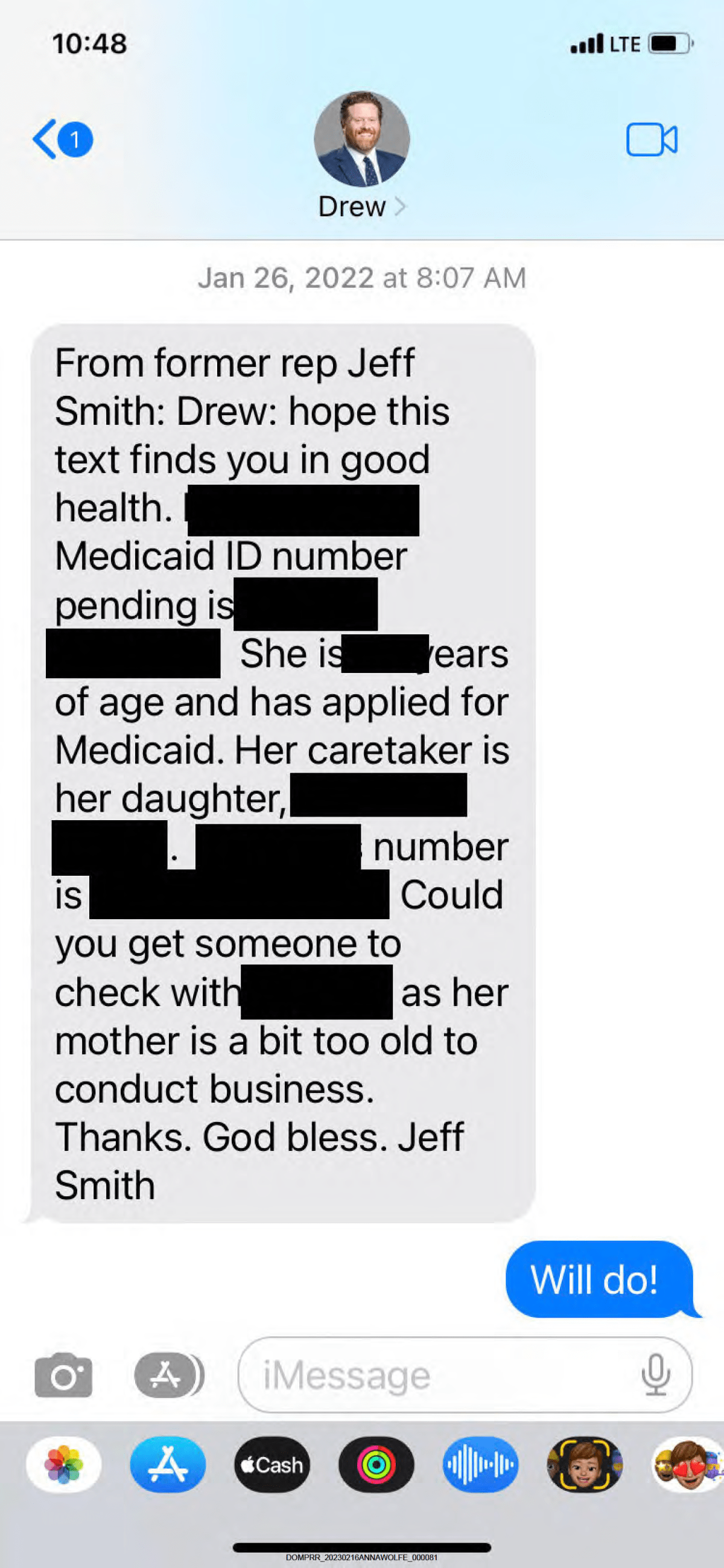
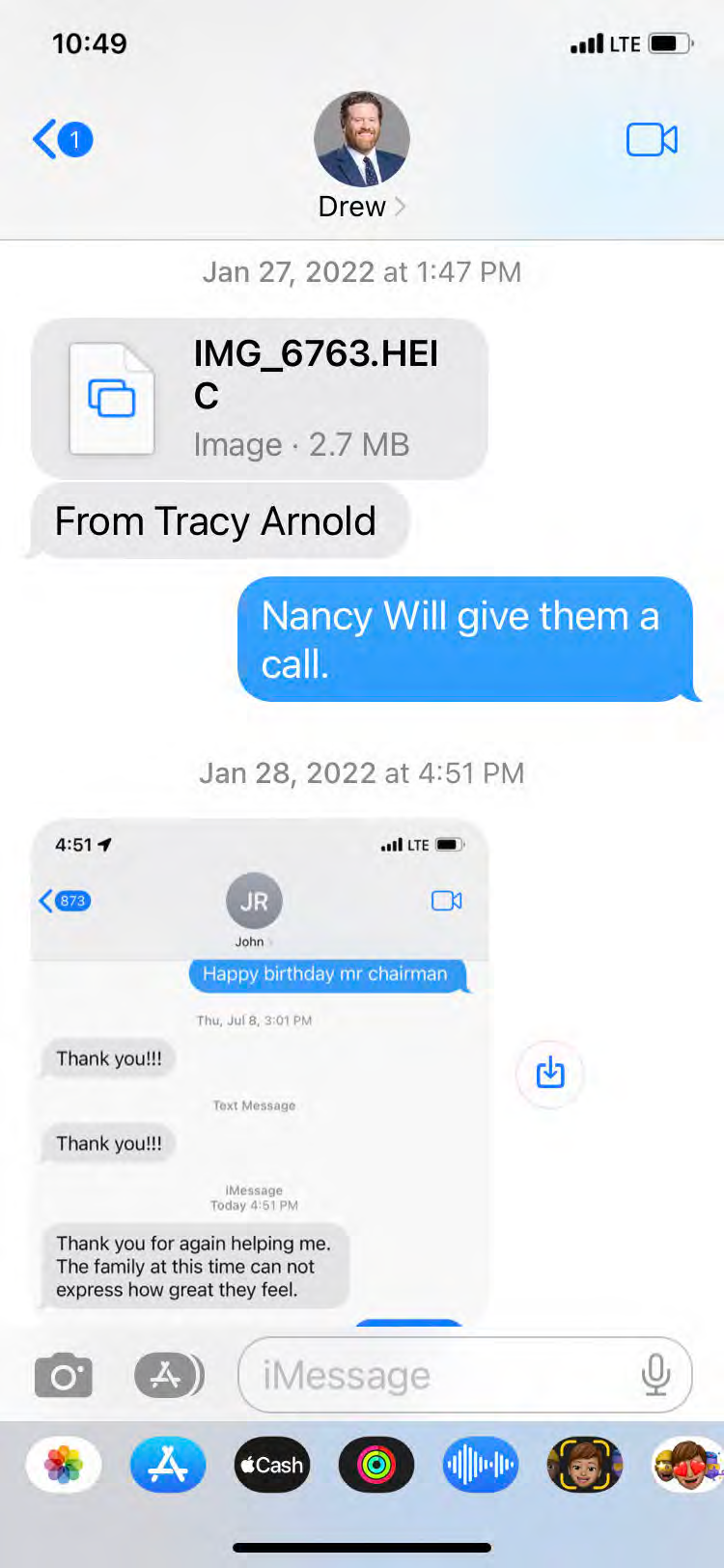
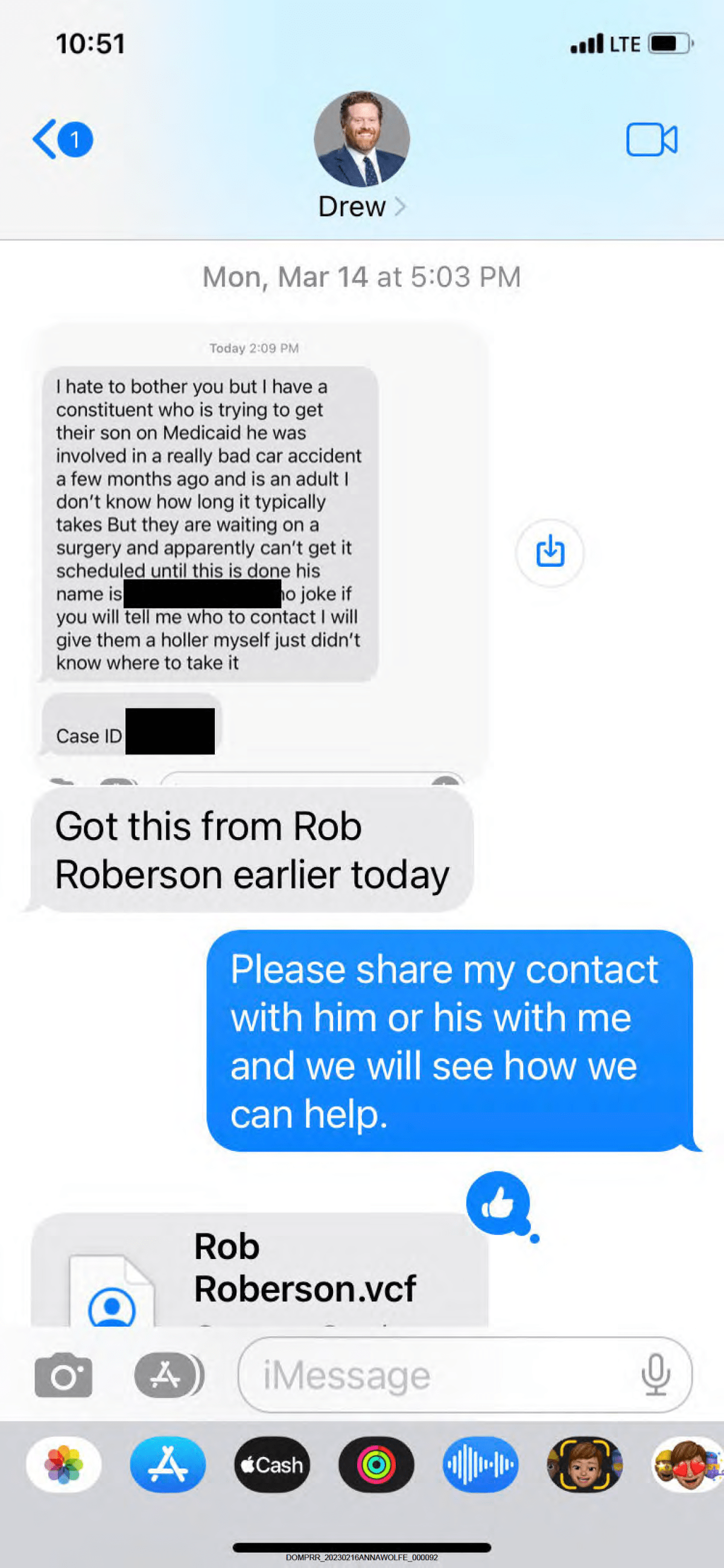
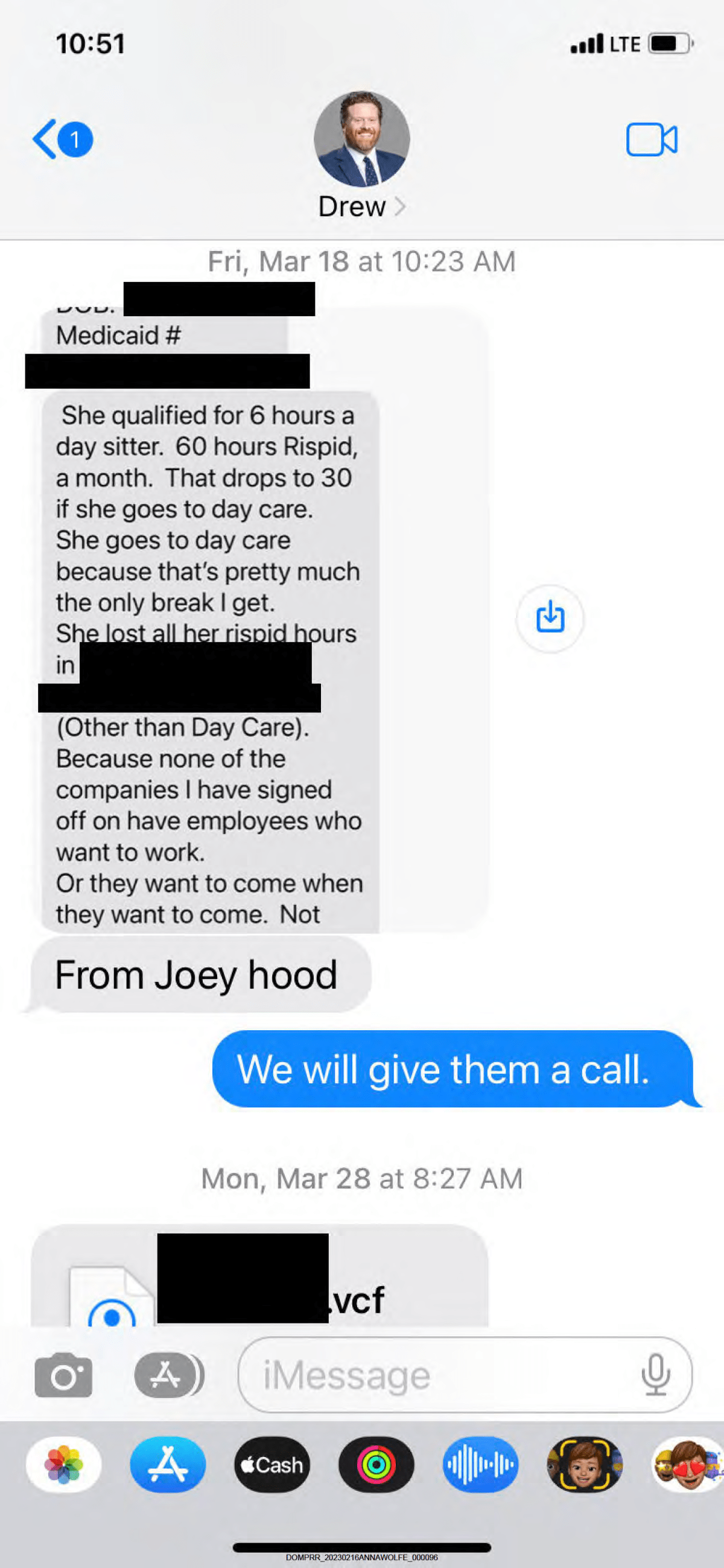

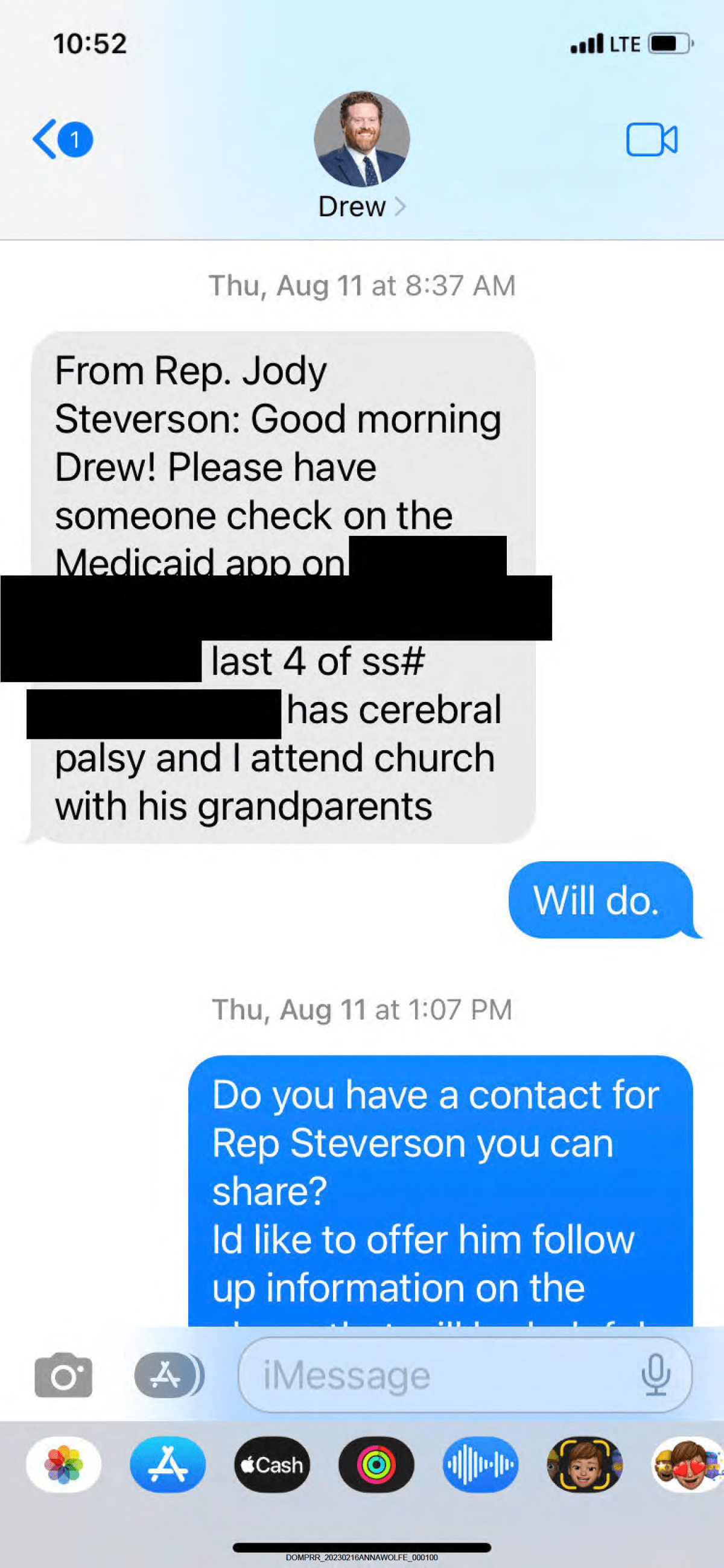
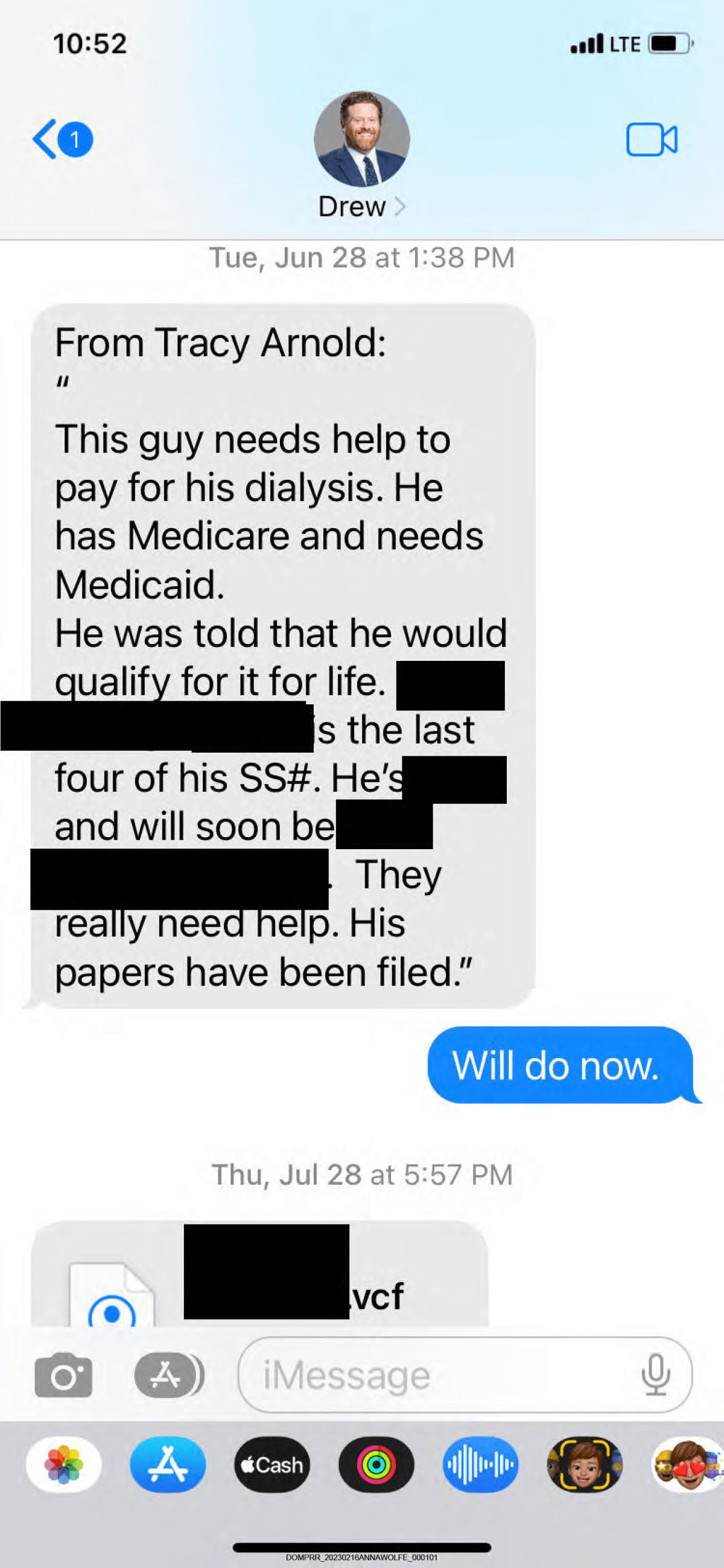
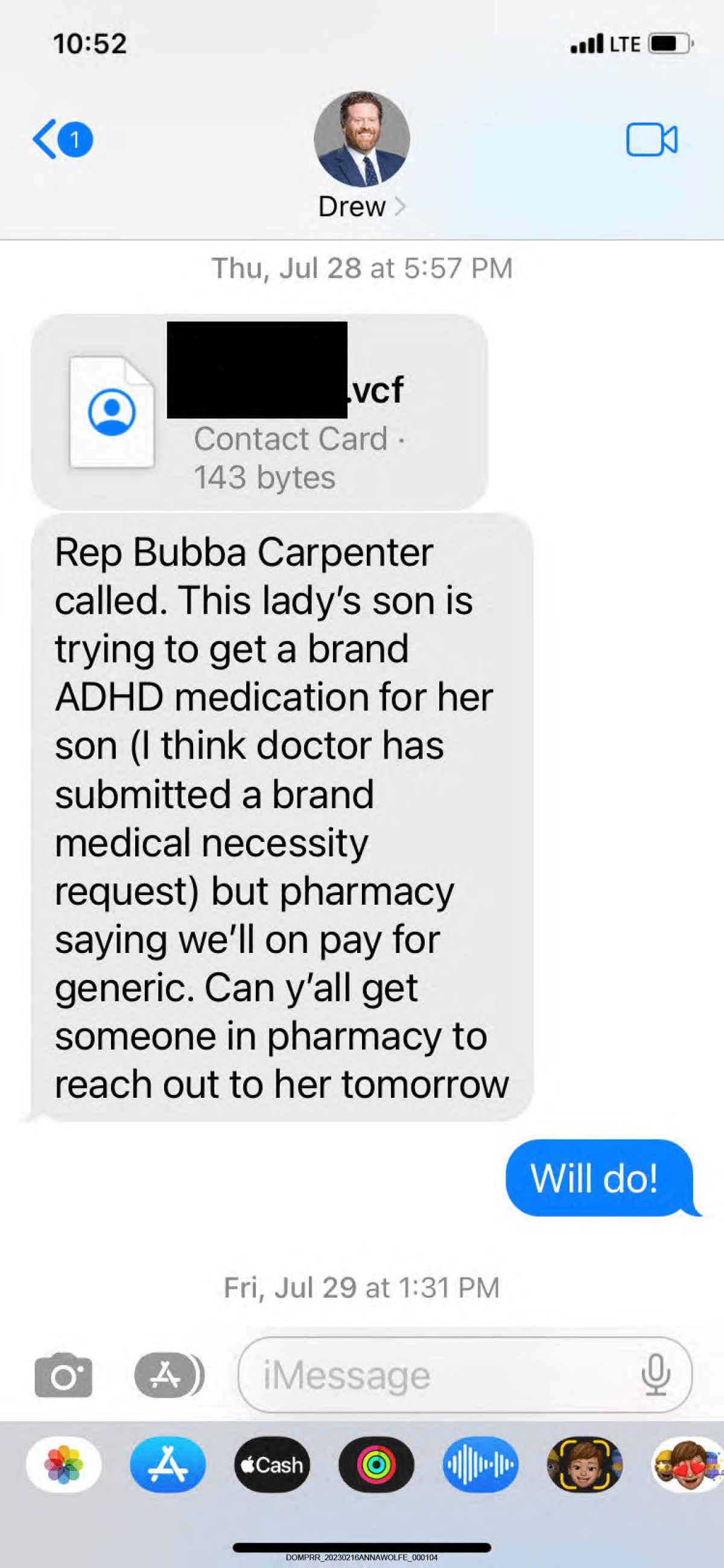
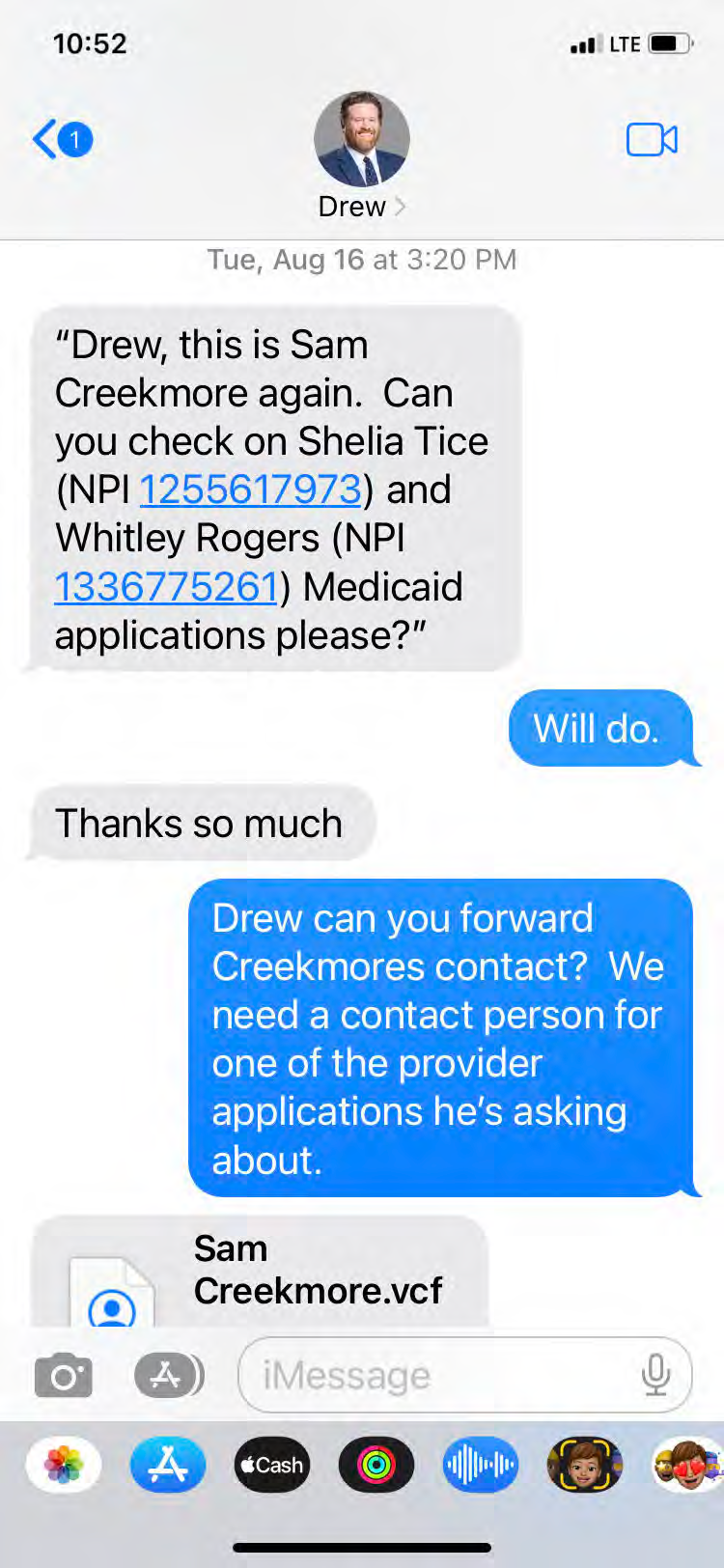
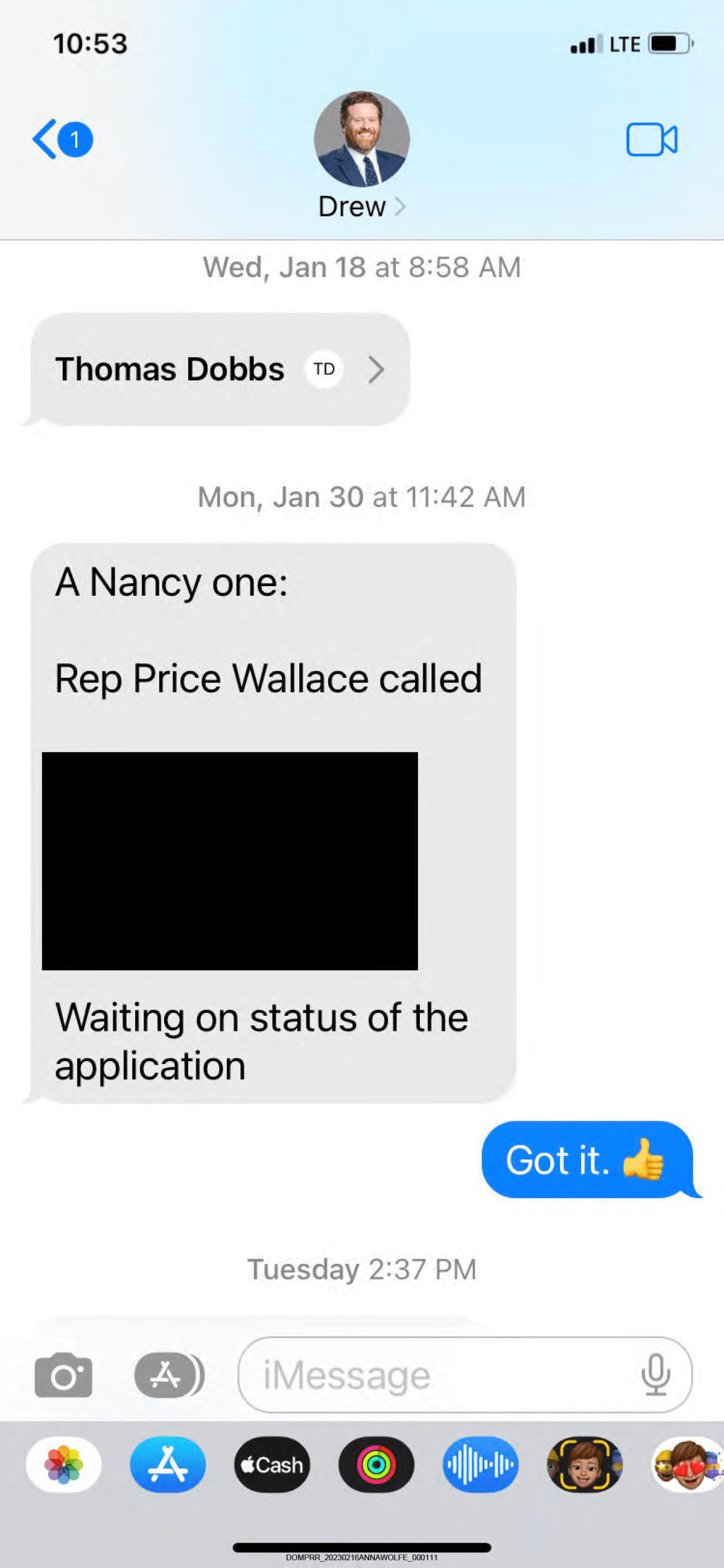
This article first appeared on Mississippi Today and is republished here under a Creative Commons license.
Mississippi Today
Podcast: The controversial day that Robert Kennedy came to the University of Mississippi

Retired U.S. Bankruptcy Judge Edward Ellington talks with Mississippi Today's Bobby Harrison and Geoff Pender about former U.S. Attorney General Robert Kennedy's speech at the University of Mississippi less than four years after the riots that occurred after the integration of the school. Ellington, who at the time headed the Ole Miss Speaker's Bureau as a law school student, recalls the controversy leading up to the speech.
This article first appeared on Mississippi Today and is republished here under a Creative Commons license.
Did you miss our previous article…
https://www.biloxinewsevents.com/?p=359978
Mississippi Today
On this day in 1961
MAY 20, 1961

A white mob of more than 300, including Klansmen, attacked Freedom Riders at the Greyhound Bus Station in Montgomery, Alabama. Future Congressman John Lewis was among them.
“An angry mob came out of nowhere, hundreds of people, with bricks and balls, chains,” Lewis recalled.
After beating on the riders, the mob turned on reporters and then Justice Department official John Seigenthaler, who was beaten unconscious and left in the street after helping two riders.
“Then they turned on my colleagues and started beating us and beat us so severely, we were left bloodied and unconscious in the streets of Montgomery,” Lewis recalled.
As the mob headed his way, Freedom Rider James Zwerg said he asked for God to be with him, and “I felt absolutely surrounded by love. I knew that whether I lived or died, I was going to be OK.”
The mob beat him so badly that his suit was soaked in blood.
“There was nothing particularly heroic in what I did,” he said. “If you want to talk about heroism, consider the Black man who probably saved my life. This man in coveralls, just off of work, happened to walk by as my beating was going on and said ‘Stop beating that kid. If you want to beat someone, beat me.' And they did. He was still unconscious when I left the hospital.”
To quell the violence, Attorney General Robert Kennedy sent in 450 federal marshals.
This article first appeared on Mississippi Today and is republished here under a Creative Commons license.
Mississippi Today
2024 Mississippi legislative session not good for private school voucher supporters
Despite a recent Mississippi Supreme Court ruling allowing $10 million in public money to be spent on private schools, 2024 has not been a good year for those supporting school vouchers.
School-choice supporters were hopeful during the 2024 legislative session, with new House Speaker Jason White at times indicating support for vouchers.
But the Legislature, which recently completed its session, did not pass any new voucher bills. In fact, it placed tighter restrictions on some of the limited laws the state has in place allowing public money to be spent on private schools.
Notably, the Legislature passed a bill that provides significantly more oversight of a program that provides a limited number of scholarships or vouchers for special-needs children to attend private schools.
Going forward, thanks to the new law, to receive the vouchers a parent must certify that their child will be attending a private school that offers the special needs educational services that will help the child. And the school must report information on the academic progress of the child receiving the funds.
Also, efforts to expand another state program that provides tax credits for the benefit of private schools was defeated. Legislation that would have expanded the tax credits offered by the Children's Promise Act from $8 million a year to $24 million to benefit private schools was defeated. Private schools are supposed to educate low income students and students with special needs to receive the benefit of the tax credits. The legislation expanding the Children's Promise Act was defeated after it was reported that no state agency knew how many students who fit into the categories of poverty and other specific needs were being educated in the schools receiving funds through the tax credits.
Interestingly, the Legislature did not expand the Children's Promise Act but also did not place more oversight on the private schools receiving the tax credit funds.
The bright spot for those supporting vouchers was the early May state Supreme Court ruling. But, in reality, the Supreme Court ruling was not as good for supporters of vouchers as it might appear on the surface.
The Supreme Court did not say in the ruling whether school vouchers are constitutional. Instead, the state's highest court ruled that the group that brought the lawsuit – Parents for Public Schools – did not have standing to pursue the legal action.
The Supreme Court justices did not give any indication that they were ready to say they were going to ignore the Mississippi Constitution's plain language that prohibits public funds from being provided “to any school that at the time of receiving such appropriation is not conducted as a free school.”
In addition to finding Parents for Public Schools did not have standing to bring the lawsuit, the court said another key reason for its ruling was the fact that the funds the private schools were receiving were federal, not state funds. The public funds at the center of the lawsuit were federal COVID-19 relief dollars.
Right or wrong, The court appeared to make a distinction between federal money and state general funds. And in reality, the circumstances are unique in that seldom does the state receive federal money with so few strings attached that it can be awarded to private schools.
The majority opinion written by Northern District Supreme Justice Robert Chamberlin and joined by six justices states, “These specific federal funds were never earmarked by either the federal government or the state for educational purposes, have not been commingled with state education funds, are not for educational purposes and therefore cannot be said to have harmed PPS (Parents for Public Schools) by taking finite government educational funding away from public schools.”
And Southern District Supreme Court Justice Dawn Beam, who joined the majority opinion, wrote separately “ to reiterate that we are not ruling on state funds but American Rescue Plan Act (ARPA) funds … The ARPA funds were given to the state to be used in four possible ways, three of which were directly related to the COVID -19 health emergency and one of which was to make necessary investments in water, sewer or broadband infrastructure.”
Granted, many public school advocates lamented the decision, pointing out that federal funds are indeed public or taxpayer money and those federal funds could have been used to help struggling public schools.
Two justices – James Kitchens and Leslie King, both of the Central District, agreed with that argument.
But, importantly, a decidedly conservative-leaning Mississippi Supreme Court stopped far short – at least for the time being – of circumventing state constitutional language that plainly states that public funds are not to go to private schools.
And a decidedly conservative Mississippi Legislature chose not to expand voucher programs during the 2024 session.
This article first appeared on Mississippi Today and is republished here under a Creative Commons license.
-
Our Mississippi Home6 days ago
Beat the Heat with Mississippi’s Best Waterparks
-
SuperTalk FM3 days ago
State auditor cracking down on Mississippians receiving unemployment benefits
-
Mississippi News Video5 days ago
Jackson has a gang problem
-
Kaiser Health News6 days ago
Medicaid ‘Unwinding’ Decried as Biased Against Disabled People
-
Local News3 days ago
Family files lawsuit after teen’s suicide in Harrison County Jail
-
Mississippi Today4 days ago
On this day in 1950
-
228Sports6 days ago
George County Pours Runs In 6A South State Title Victory At PRC
-
Our Mississippi Home2 days ago
Deer Fly Season on the Coast – Oh My!
